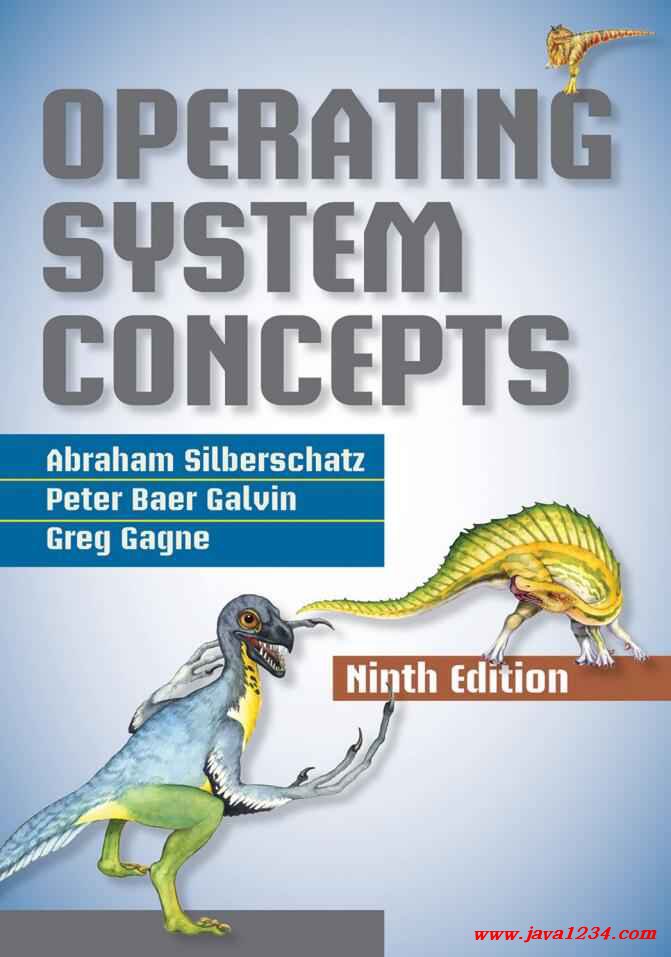| 失效链接处理 |
|
Operating System Concepts, 9th Edition PDF 下载
本站整理下载:
相关截图:

主要内容:
The text is organized in eight major parts:
• Overview. Chapters 1 and 2 explain what operating systems are, what
they do, and how they are designed and constructed. These chapters
discuss what the common features of an operating system are and what an
operating system does for the user. We include coverage of both traditional
PC and server operating systems, as well as operating systems for mobile
devices. The presentation is motivational and explanatory in nature. We
have avoided a discussion of how things are done internally in these
chapters. Therefore, they are suitable for individual readers or for students
in lower-level classes who want to learn what an operating system is
without getting into the details of the internal algorithms.
• Process management. Chapters 3 through 7 describe the process concept
and concurrency as the heart of modern operating systems. A process
is the unit of work in a system. Such a system consists of a collection
of concurrently executing processes, some of which are operating-system
processes (those that execute system code) and the rest of which are user
processes (those that execute user code). These chapters cover methods for
process scheduling, interprocess communication, process synchronization,
and deadlock handling. Also included is a discussion of threads, as well
as an examination of issues related to multicore systems and parallel
programming.
• Memory management. Chapters 8 and 9 deal with the management of
main memory during the execution of a process. To improve both the
utilization of the CPU and the speed of its response to its users, the
computer must keep several processes in memory. There are many different
memory-management schemes, reflecting various approaches to memory
management, and the effectiveness of a particular algorithm depends on
the situation.
• Storage management. Chapters 10 through 13 describe how mass storage,
the file system, and I/O are handled in a modern computer system. The
file system provides the mechanism for on-line storage of and access
to both data and programs. We describe the classic internal algorithms
and structures of storage management and provide a firm practical
understanding of the algorithms used—their properties, advantages, and
disadvantages. Since the I/O devices that attach to a computer vary widely,
the operating system needs to provide a wide range of functionality to
applications to allow them to control all aspects of these devices. We
discuss system I/O in depth, including I/O system design, interfaces, and
internal system structures and functions. In many ways, I/O devices are
the slowest major components of the computer. Because they represent
|




 苏公网安备 32061202001004号
苏公网安备 32061202001004号



